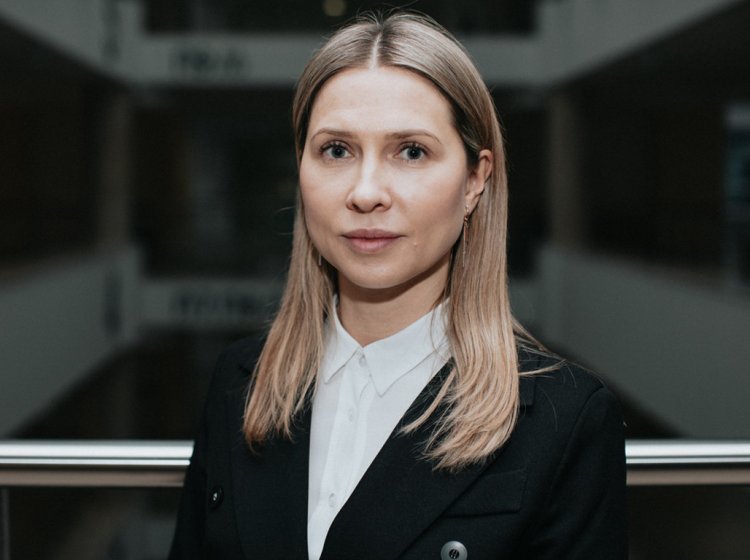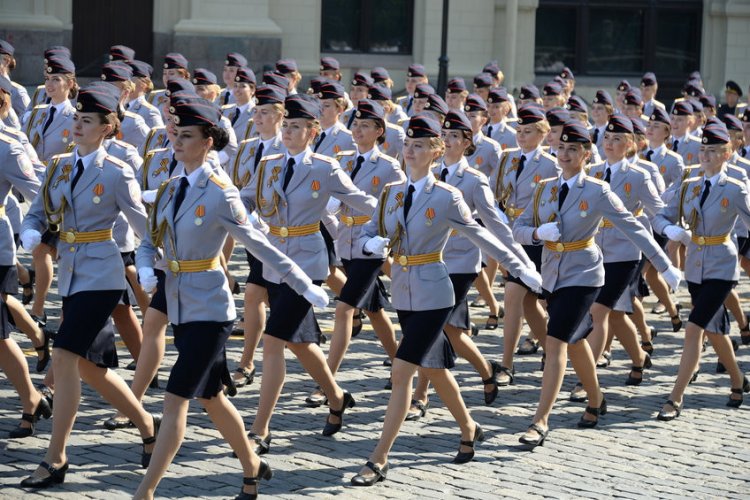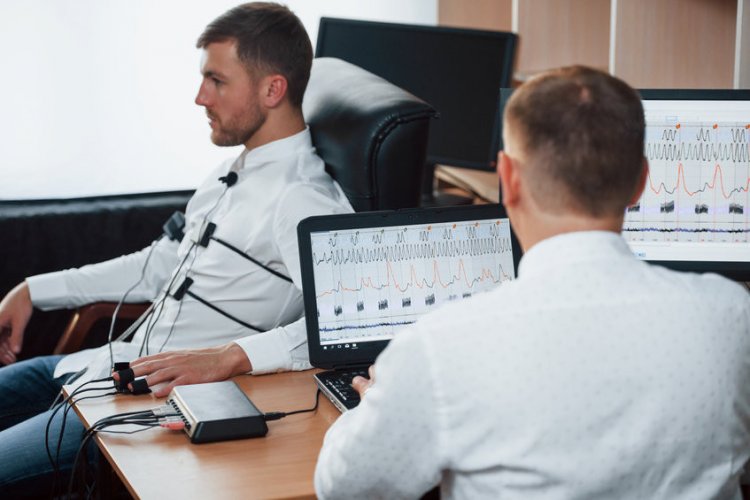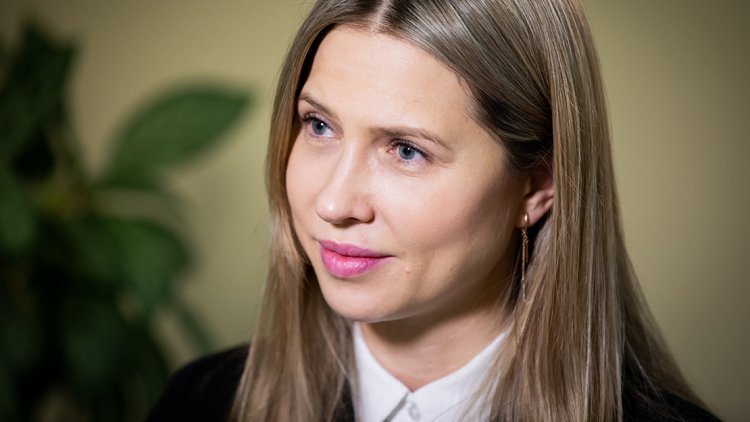How do psychologists work in law enforcement agencies and what is the unique specificity of their activities? We discussed these and many other issues with Olga Ulyanina, Doctor of Psychology, Professor at the Higher School of Economics, Chief Researcher at the Research Center of the Academy of Management of the Ministry of Internal Affairs of Russia, Corresponding Member of the Russian Academy of Education.
─ What is the specificity of psychological work units in the Ministry of Internal Affairs of Russia?
─ The job of a police officer is associated with certain risks, threats, increased physical, intellectual, and emotional stress. And this, of course, defines a number of requirements for the professional competence of employees of the internal affairs bodies, which, in turn, pushes us to the need to carry out the professional psychological selection of candidates for service in the internal affairs bodies.
The areas of work of psychological units in the internal affairs bodies are different, but they begin with selection. Cadets and students of departmental educational organizations are, in fact, already police officers; therefore, when enrolling in a departmental educational organization, they enter the service and undergo a series of tests that include studying their personal and business qualities, identifying risk factors for deviant socially dangerous behavior, etc. They go through all these stages before the admission campaign: this means that candidates for training who do not pass professional psychological selection are not allowed to take further exams.
The training itself, which lasts five years, is also specific, since, in addition to educational activities, cadets are involved in the protection of public order, in the performance of various official obligations. Thus, they have an additional burden, and psychologists, of course, provide support for their professional development, aiding and supporting both in the success of mastering the curriculum and in crises with which training may be associated. In addition, for a certain period of training, cadets live on the territory of an educational organization, and this is also a certain stressful factor. Many students, whose average age is 17-18 years, come to us from other regions, and for them, it is a change of residence, a change of environment, they are separated from their loved ones and relatives, they completely change the environment, so there is no way to do without the help of a psychologist here.
─ This is, of course, a lot of stress.
─ Yes, it is. Therefore, during each period of training, psychologists implement special correctional, developmental, and training programs aimed at adaptation, consolidation of educational teams, normalization, and building constructive relationships within study groups.
In senior years, the focus of attention shifts towards developing programs focused more on the formation of the necessary professional competencies. We often conduct these programs right before practice, so that our girls and boys are more prepared for what awaits them in the service.
One of the significant areas of work is psychological counseling, both at the request of the students themselves, and in the direction of course officers, parents, and teaching staff. To analyze the effectiveness of our psychological work, we conduct psychodiagnostic sections at least once every six months, allowing us to assess the level of formation of those competencies that are significant to us, and timely identify negative psycho-emotional states or personal problems that, of course, cadets face.
In addition to working with cadets, psychologists work with employees of a departmental educational organization and provide psychological assistance and support for professional activities and the educational process.
Cadets of the Ministry of Internal Affairs of Russia at the dress rehearsal of the Red Square Victory Day parade. Photo: fotovlad / 123RF
─ Contacting a psychologist implies confidentiality. How is this principle observed in the work of Internal Affairs psychologists?
─ Yes, the work of a psychologist in the internal affairs bodies must comply with the principles and rules of professional ethics of psychological practice. And our work is certainly confidential and complies with these principles.
There are cases when employees or cadets turn to a psychologist not on their own initiative, but at the request of parents or department heads, course officers, or teaching staff, and this request is usually associated with solving some specific problem: for example, the student’s academic performance or a conflict in the service team. And then, based on the results of the work, the psychologist formulates recommendations on how best to build interaction with an employee or with a cadet to solve the problem that was a request to work with him. All work options related, for example, to the socio-psychological study of climate in teams, follow the same principle: according to the results of research, certificates are prepared that describe the results in a generalized form, without personal data, and include mandatory recommendations for the formation of a favorable climate and the resolution of the problems identified during the study.
─ Let’s talk about such a somewhat romanticized profession as an investigator. In movies and books, they are often portrayed as unapproachable and mysterious intellectuals. To what extent does this correspond to reality and what competencies should an investigator have? How much does their training program differ from the rest?
─ Of course, each training program has its specifics, whether it is an investigator, a forensic expert, or an operative. Current regulatory documents strictly define the list of personal and business qualities that police officers should possess in general, but it is obvious that the professional activity of investigators is associated with an increased intellectual load and assumes the ability to analyze, generalize data, to determine cause-and-effect relationships in those events and phenomena that are subject to investigation. Therefore, in the professional program and the competence model of the investigator, the emphasis is shifted to the intellectual and analytical components. Also, stress resistance, the ability to make decisions and implement analytical functions in conditions of risk, threats, and limited time resources, as well as lack of information, are characteristic and significant for all areas of law enforcement agencies.
─ Stress resistance is partly related to the type of nervous system. And is it possible to turn your nervous system, if it is initially weak, into a strong one? Or is it innate and remains for life?
─ The specifics of higher nervous activity that determine a person’s temperament and more are innate and remain unchanged throughout life. But they can, figuratively speaking, be played out by our characterological features.
─ How so?
─ It’s about character and its accents. They are formed during our life, directly in our activities, including professional ones. Therefore, if we are talking, for example, about the development of strong-willed qualities or purposefulness, or about the formation of a good level of motivation for official activity, then, of course, they can smooth out those features of higher nervous activity that we have innately. As for police service, here, I repeat, the selection criteria may vary depending on what position the person is being employed for and what their functional purpose is. If we observe a certain kind of discrepancy, then, of course, we are forced not to recommend a candidate for service based on the results of selection, that is, on objective indicators.
─ It’s no secret that one of the stages of such selection is passing a polygraph test. How accurate and objective are the data obtained with its help?
─ It is important to understand that everything depends on the specialist who conducts the polygraph test, on compliance with the procedure, rules, and requirements for its conduct. To minimize the risk of information distortion, for example, the procedure of registering the background state of the subject is conducted, when we put sensors on a person and record their main psychophysiological indicators: skin-galvanic reaction, blood pressure, heart rate, features of the respiratory system. Further, when checking directly, we always return to this initial background state, that is, we can compare and evaluate a person’s reaction, to find out what is it caused by: excitement, anxiety, and worry about the result and the possibility of subsequent employment, or experiences related to the concealment of significant information.
And, again, we do not use the polygraph as a separate tool. The results of the conclusions of a special psychophysiological study using a polygraph are always advisory. This is just one of the tools that allow us to learn a little more about the candidate for the service, but nothing more. We always evaluate a person comprehensively, using a wide range of various methods.
Passing a polygraph. Photo: standrets / 123RF
─ What research methods do you like the most as a psychologist?
─ In addition to the main directions that I have already announced, psychological counseling and training forms of work, there are many other interesting tools that we use: these are various methods of psychoanalysis, cognitive-behavioral approach, gestalt therapy, humanistic therapy, and others.
Today, the so-called integrative approach is gaining popularity in psychological practice, when, depending on the characteristics of a person, the problems they face, we select individual tools. I don’t have a single favorite approach because every person is unique.
During the first consultation session, we, as a rule, collect anamnesis, study a person, talk out the difficulties, problems, and requests with which they turned for psychological help. Further, taking into account these problems and individual characteristics, we select the tools that will work with this person in this situation.
I like to change techniques, try different things, expand my practical experience, and see which tools are effective and in which situations they work better.
Olga Aleksandrovna Ulyanina is twice a laureate of the All-Russian and International competitions for the best scientific book in the humanitarian field, winner of the professional skills competition among psychologists of the Ministry of Internal Affairs of Russia for the title of Best by Profession (2013), winner of the All-Russian competition for the best research work on the problems of improving the activities of the internal affairs bodies of the Russian Federation (2020). Photo: Elena Librick / Scientific Russia
─ Do you think a psychologist who works in the internal affairs bodies should be more stress-resistant than an ordinary psychologist?
─ I think so, because in addition to performing professional duties related to psychological practice, there are also special activities, including handling weapons, and, of course, this requires stress resistance and additional competencies, which, perhaps, are not so relevant for a civilian psychologist.
─ Why did you decide to dedicate yourself to working in law enforcement agencies?
─ I graduated from Volgograd State Pedagogical University with a degree in psychology in 2004. By that time, the work of the psychological service had already been effectively built up in the system of the Ministry of Internal Affairs of Russia. Such a broad and well-developed practice in the main areas of activity at that time existed only in the structure of the Ministry of Internal Affairs of Russia.
The Ministry of Internal Affairs of Russia is perhaps one of the first institutions in our country where the work of the psychological service was so competently built. Moreover, this work was very diverse, and therefore very interesting. I had a wide choice of areas of activity: counseling, diagnostics, correction, and many other areas. Thus, there was an opportunity to get practice in all the main areas of psychological work and an excellent scientific and methodological foundation for this work. This is an invaluable experience.
─ Finally, I would like to talk about your scientific publications. This year, under your editorship, the monograph “Personal competence of law enforcement specialists: psychotechnology of formation in educational institutions of higher education,” textbooks “Psychodiagnostics with employees of the internal affairs bodies of the Russian Federation,” “Psychological analysis of emotional and personal problems of pupils of special educational institutions” and other interesting works were published. What are you currently focused on in terms of scientific research?
─ The subject of my scientific research is quite extensive, and now I am focused on two global projects. The first is the functioning of the psychological service in the education system as a whole. And here, together with our colleagues, we have published several works related, for example, to building interdepartmental interaction between specialists of psychological services within the framework of psychological support for underage students. The second is the functioning of the psychological service in the system of the Ministry of Internal Affairs of Russia. Actually, the monograph you mentioned was dedicated to this. In it, I consider the concept of psychological work in departmental educational organizations. In addition, this year we have also published a fundamental and interesting work “Psychodiagnostics with employees of the internal affairs bodies of the Russian Federation,” which includes the widest possible list of methodological psychodiagnostic tools used by psychologists both at the stage of selecting candidates for service and in the process of accompanying professional and educational activities of employees.
The interview was conducted with the support of the Ministry of Science and Higher Education of the Russian Federation and the Russian Academy of Sciences.





































